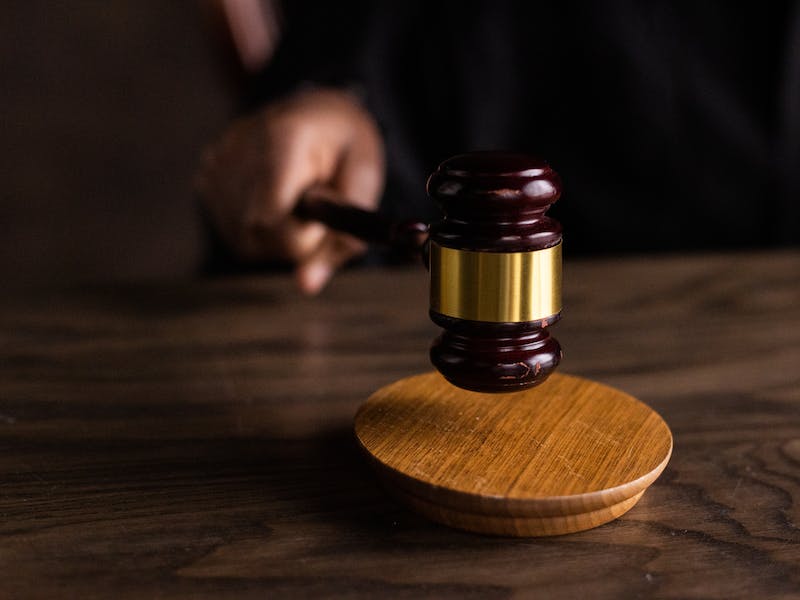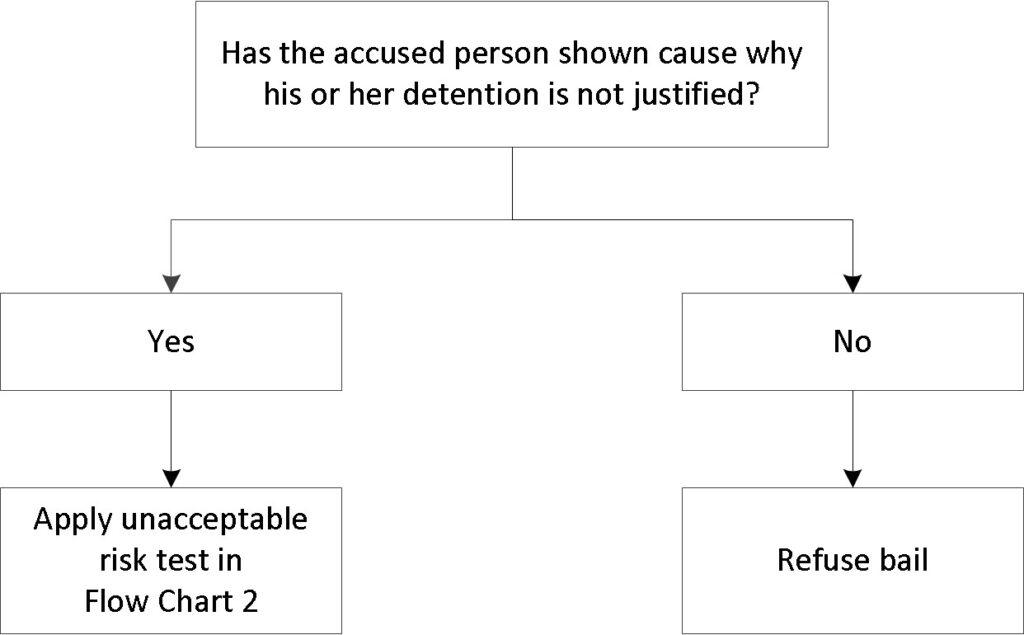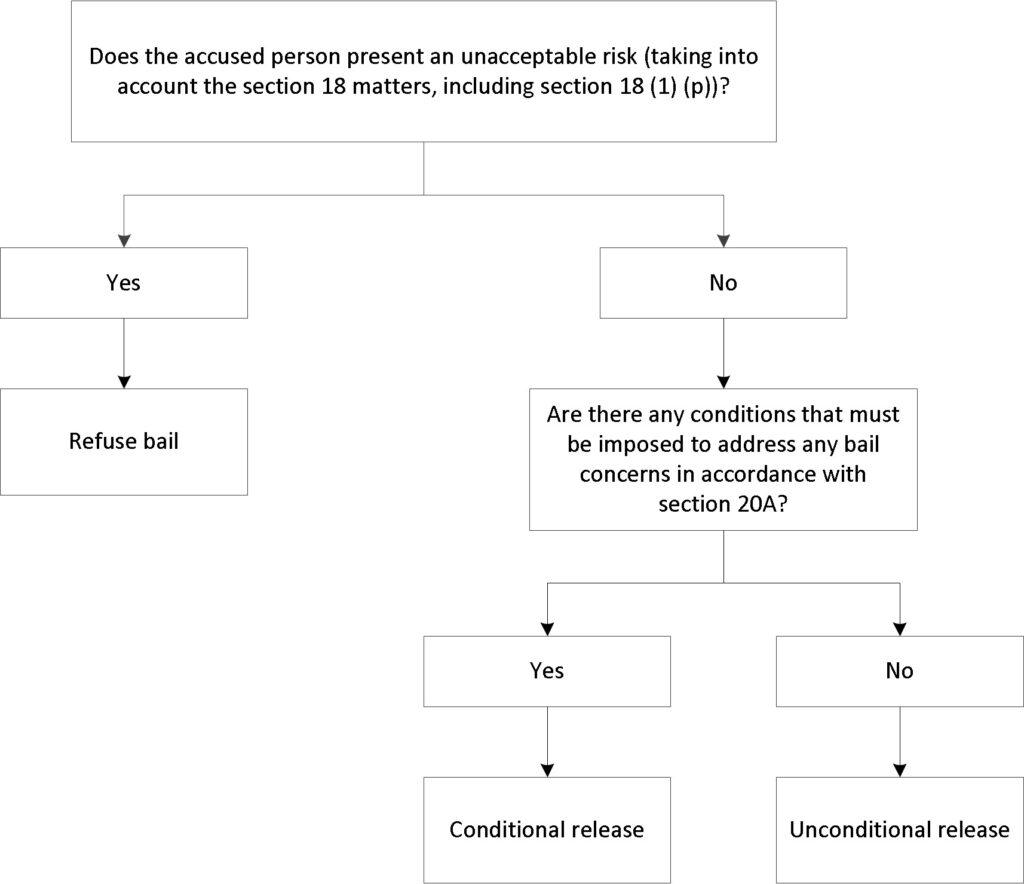
Bail is authority to be at liberty for an offence. Individuals accused of committing an offence are often arrested and the bail process is enlivened.
Who can grant Bail in NSW?
In NSW, Police have the power to make bail decisions. This bail decision can only be made by a Police Officer of or above the rank of Sargeant. The NSW Police have the power to make a bail decision by:
- Releasing the accused without bail,
- Granting bail (with or without conditions), or
- Refusing bail.
If the NSW Police refuse bail to the accused, then they must present the accused before a Court as soon as practicable to be dealt with according to law.
Once is the accused is brought before the Court, the accused may apply for bail (release application). The Court has the power to:
- Dispense with bail, or
- Grant bail (with or without conditions), or
- Refuse bail.
Bail Decisions by Courts
The first step in determining a bail application (release application) is determination of whether the offence is a show cause offence.
If an offence is a show cause offence, the accused, at the outset of the bail application (release application) must show cause why his or her detention is not justified. Section 16B Bail Act 2013 (NSW) lists the offences which are show cause offences and Blacktown Criminal Lawyers | AMA Legal stress the importance of knowing which offences are captured by the show cause provisions as failure to adequately present material to show cause will lead to refusal of the bail application (release application) as per the chart below.

How to show cause?
The circumstances of each case and the accused are unique. The Bail Act 2013 (NSW) does not provide for what constitutes showing cause, however, Blacktown Criminal Lawyers | AMA Legal have noted that the following factors individually or combined have been accepted by the Courts as cause being shown:
- Family vulnerability/hardship if the accused is denied bail,
- Time spent in custody being trial (delay),
- Strength of the prosecution case,
- Mature age of the accused,
- Limited or no criminal history,
- Physical and mental health of the accused,
- Likelihood of custodial sentence,
- Amount of surety,
- Hardship in custody,
- Community ties,
- Proposed bail conditions,
- Youth.
Bail Concerns
If cause is shown, the Court then considers whether there are any of the following bail concerns:
- Fail to appear at any proceedings for the offence, or
- Commit a serious offence, or
- Endanger the safety of victims, individuals, or the community, or
- Interfere with witnesses or evidence.
In deciding whether or not there are bail concerns, the Courts consider, amongst other factors:
- The accused person’s background, including criminal history, circumstances and community ties,
- The nature and seriousness of the offence,
- The strength of the prosecution case,
- Whether the accused person has a history of violence,
- Whether the accused person has previously committed a serious offence while on bail,
- Whether the accused person has a history of compliance or non-compliance Court orders,
- Whether the accused person has any criminal associations,
- The length of time the accused person is likely to spend in custody if bail is refused,
- The likelihood of a custodial sentence being imposed if the accused person is convicted of the offence,
- Any special vulnerability or needs the accused person has,
- The need for the accused person to be free to prepare for his or her appearance in court or to obtain legal advice,
- The bail conditions that could reasonably be imposed to address any bail concerns.
If the Court finds that there are unacceptable risks of any of the bail concerns materialising, then bail is refused.
If the Court finds that there are bail concerns but there are no unacceptable risks of the bail concerns materialising, then the Court will grant bail with or without bail conditions as per the chart below.

Blacktown Criminal Lawyers | AMA Legal note the following as the most common bail conditions:
- Not to commit any further offences,
- To appear before the Court,
- To abstain from drugs and alcohol,
- To report to a Police station,
- To reside at a specific address,
- Not to go to a particular suburb,
- Curfew condition,
- Non association condition,
- Surety condition.
Criminal defence lawyers in Blacktown, AMA Legal stress the importance of preparation for bail applications (release applications) and providing the Court with all materials which are relevant in support of the bail application.
Conclusion:
Successfully navigating the bail application process requires careful consideration of the Bail legislation and case law. It is essential for both the accused and their legal representatives to approach bail applications with diligence, attention to detail, and a clear understanding of the specific circumstances surrounding the case. In doing so, individuals can enhance their prospects of a positive outcome allowing them to await trial outside of custody.

